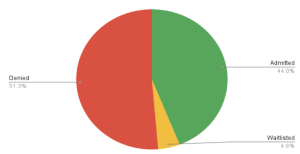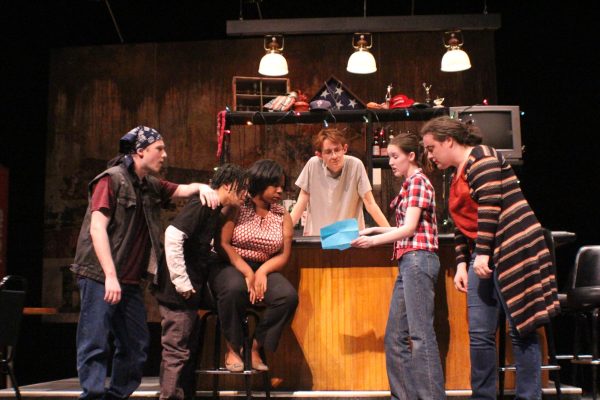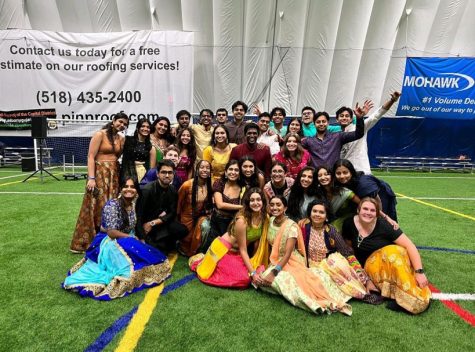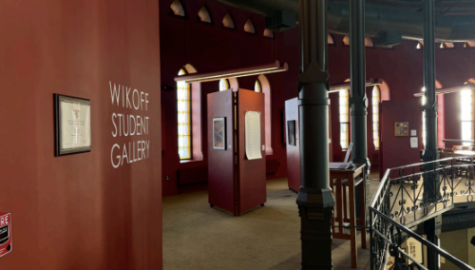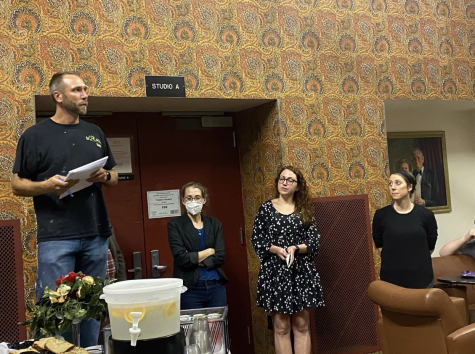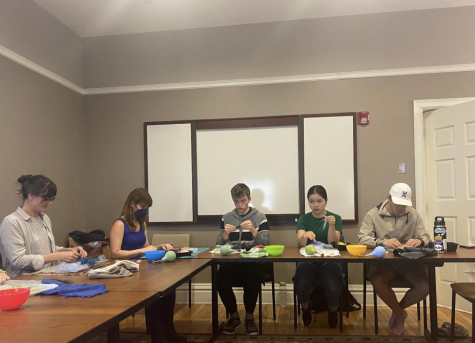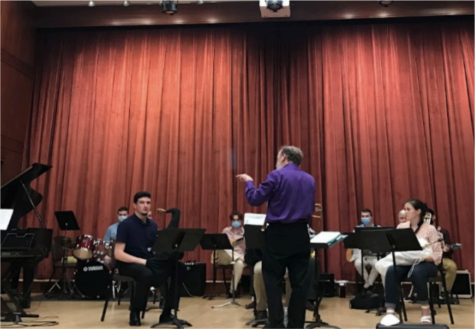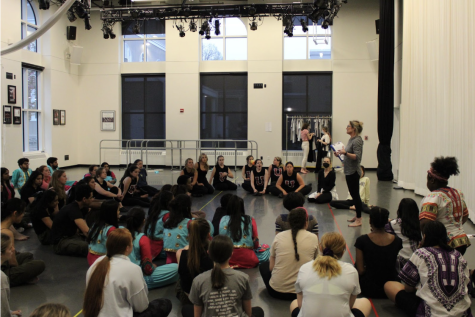Student musician releases album exploring the discourse of love
April 28, 2019
Student musician Alex Trousilesk ’21 has recently released an album entitled “Plasticlovedreams,” under the name ALEXVALENTINE. The allure and artistry of her voice interwoven with skillful production and guitar create a transcendent piece of work. The lyrics found in “Plasticlovedreams” are lovely and poetic, carrying each listener into visions of her past.
Cover art is designed by Jan Trousilesk, featuring photography by John Jiang ’21. Jiang says that Trousilesk’s work “makes me feel resonance with my surroundings.”
“WAVE LENGTHS (intro)” captures a palpable current with synth progressions, fluid base and lyrics aching for a world in which we all can “coexist.” The shaky nature of the melody emanates a sense of uncertainty and complexity that draws in the listener. “Glyceride” reminds one of many a Beach House melody, structured in a similar manner as “Wildflower.”
“The Finish” is flawlessly produced, with a beautiful, wavering instrumental juxtaposed with Trousilesk’s untamed yet angelic vocals. Her voice is smooth, certain and emotive. Trousilesk peacefully reaches out to a lover, repeating, “call me, baby.”
“Yellow Bruises.” is a more upbeat track, a song that Trousilesk released last spring included on her newest album. This piece has a technically pleasing instrumental with Trousilesk’s clever, altered voice, calling herself a “yellow bruises connoisseur.” The beat to Yellow Bruises is kaleidoscopic, accompanied by Trousilesk’s pure longing for a partner in this song, saying, “You wore my sweater, but I never wore yours.”
A much darker, stronger, syrupy tone exists in “What You Want/ What I Am.” This song has an incredible sound that is quite separate in nature to the rest of the album.
This song describes the universal confusion regarding the chameleon nature of care and possession. Trousilesk describes a relationship that lacks clarity, yet sings about submitting to this unrest because her partner “takes [her] there.”
“PARADISE IS LOST (interlude)” is an allusion to the work of MorMor, an exquisite instrumental that demonstrates Trousilesk’s incredible, self-taught production skills and that will have you spiraling into peaceful astral projection.
“Pooling with Monique” utilizes electronic synths, a heavier bass, spoken word and a vision of possibility, electricity and commercialism in the city. Ecstatic sounds are some of the many pieces in “Plasticlovedream” that emphasize Trousilesk’s distaste in the idea of resigning oneself to a singular genre.
“To you (siren song)” is full of aqueous melancholy with simple lyrics that allow for internal expansion facilitated by the power of Trousilesk’s celestial harmonies. This piece also incorporates samples of chirping birds and her guitar and embodies being continuously drawn back to a soul like the shifting tides of the sea.
“Dreams (interlude)” is a very interesting piece that is surprisingly powerful for an interlude. It begins with a simple chord progression that skillfully merges into a production that requires an intent understanding of musical structure.
The complex cyclical tune in the backtrack perfectly complements her thoughtful poetry, performed in a type of rhythmic spoken word. She says, “I think we’re aware we sometimes fabricate this fantasy world for ourselves which is better than reality, but part of you always wonders which contains more bliss.”
“Ocean,” “Parallel Universe” and “Outro (goodnight)” are all similar in sound. Each song has an impeccable flow, serene vocalization, fabricates fantasy in the listener and tastefully twists major synth progressions.
“Ocean” is indescribably captivating and requires a listen. “Outro (goodnight)” is a cosmic farewell, while “Parallel Universe” is a tale of resilience and pain. There is beauty in excruciation, there is art in heartbreak and “Parallel Universe” perfectly embodies the wrenching tenderness in her lyrics while creating a peaceful sunrise song in the melodies Trousilesk crafts.
“New Year’s Day” significantly shifts in sound, ending the album on a realistic note. The guitar is more emphasized than the production on this song and her vocals are altered in a more metallic way than on the rest of her tracks.
This piece is truly incredible in that Trousilesk wrote, performed and recorded the song all in one day and it was entirely improvised.
Trousilesk provides introspection and description of “Plasticlovedreams” on her website, saying, “The title drawing its inspiration from Roger Mertin’s photo series, ‘Plastic Love – Dream,’ this album describes the hardships of youth. The desire to love, to be happy, to be content, to be comforted, all juxtaposed with the inevitable reality that sometimes this cannot always exist.”
Often referring to bodies of nature, this album unifies humanity with the cosmos and beyond. The ocean becomes a prominent source of inspiration, as seen in the tracks, “Wave Lengths,” “To You,” “Ocean” and more subtly, echoing in the instrumental background in the outro for the entire album.
Stuck in what seems to be a nowhere land, the record describes a world which is in between that of reality and fiction—the alluring interest to be in a fantasy world, but the imminent reality of knowing the power of truth.
The overall, lingering message a listener can take away from experiencing the album is that music has the ability to tell a story in its entirety


